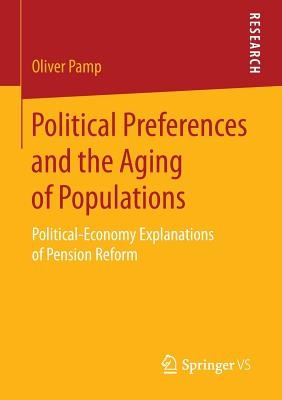
- We will send in 10–14 business days.
- Author: Oliver Pamp
- Publisher: Springer vs
- Year: 2015
- Pages: 188
- ISBN-10: 3658086149
- ISBN-13: 9783658086145
- Format: 14.8 x 21 x 1.2 cm, minkšti viršeliai
- Language: English
- SAVE -10% with code: EXTRA
Reviews
Description
Oliver Pamp analyzes the likelihood and extent of pension reforms from a political-economy perspective. It is shown that voters' preferences for or against reforms are influenced by a societies' demographic development, the generosity of its existing public pension scheme and its electoral system. The author extensively reviews existing formal models of pension systems, discusses their merits and limitations, and develops a three-period overlapping generations model. The model's insights regarding individual reform preferences are then put into the context of different electoral systems, thus emphasizing the important role of electoral institutions in the aggregation of societal preferences. Finally, using cross-national survey data, logit and ordered-logit analyses tentatively confirm some of the model's main implications.
EXTRA 10 % discount with code: EXTRA
The promotion ends in 22d.06:54:48
The discount code is valid when purchasing from 10 €. Discounts do not stack.
- Author: Oliver Pamp
- Publisher: Springer vs
- Year: 2015
- Pages: 188
- ISBN-10: 3658086149
- ISBN-13: 9783658086145
- Format: 14.8 x 21 x 1.2 cm, minkšti viršeliai
- Language: English English
Oliver Pamp analyzes the likelihood and extent of pension reforms from a political-economy perspective. It is shown that voters' preferences for or against reforms are influenced by a societies' demographic development, the generosity of its existing public pension scheme and its electoral system. The author extensively reviews existing formal models of pension systems, discusses their merits and limitations, and develops a three-period overlapping generations model. The model's insights regarding individual reform preferences are then put into the context of different electoral systems, thus emphasizing the important role of electoral institutions in the aggregation of societal preferences. Finally, using cross-national survey data, logit and ordered-logit analyses tentatively confirm some of the model's main implications.


Reviews